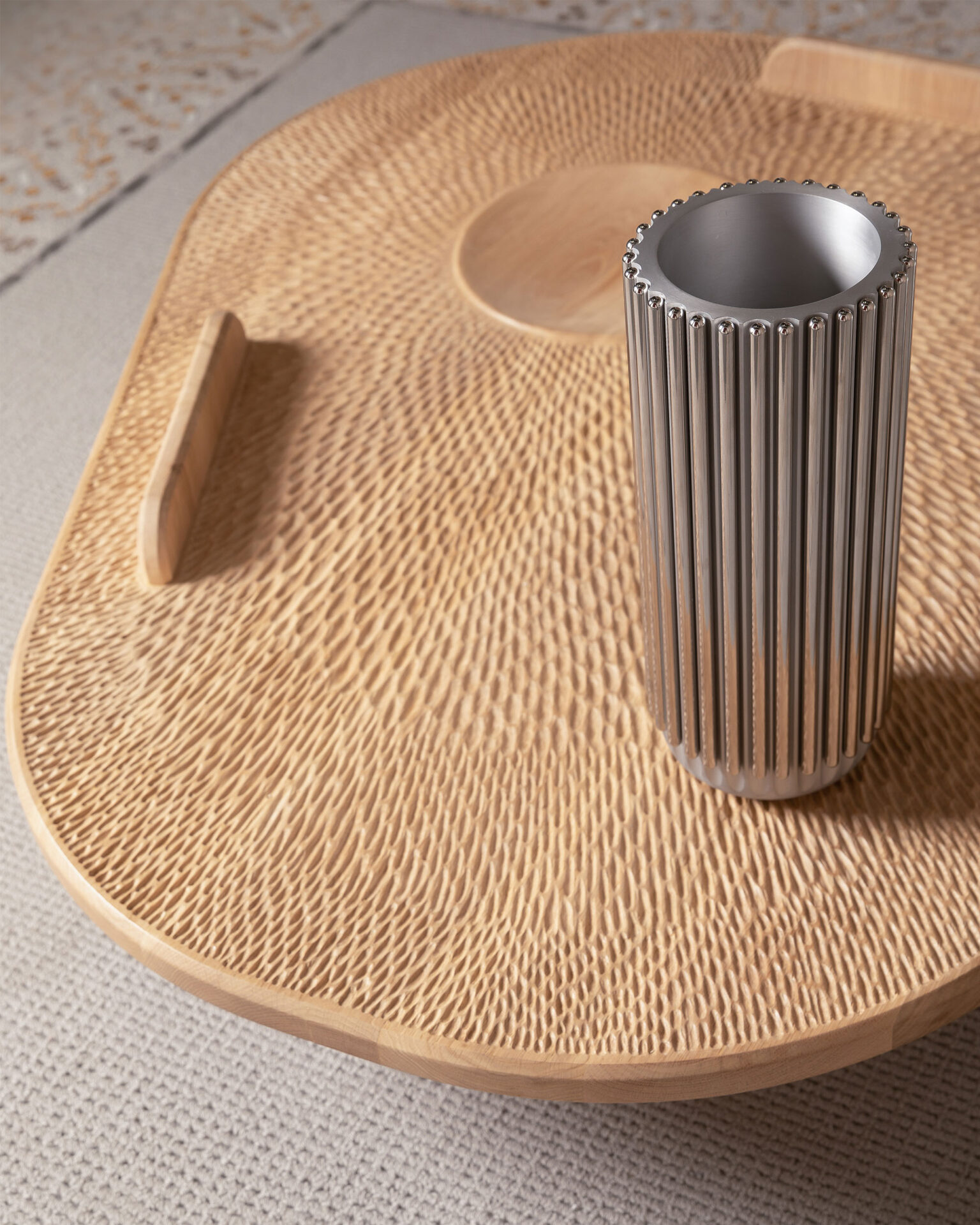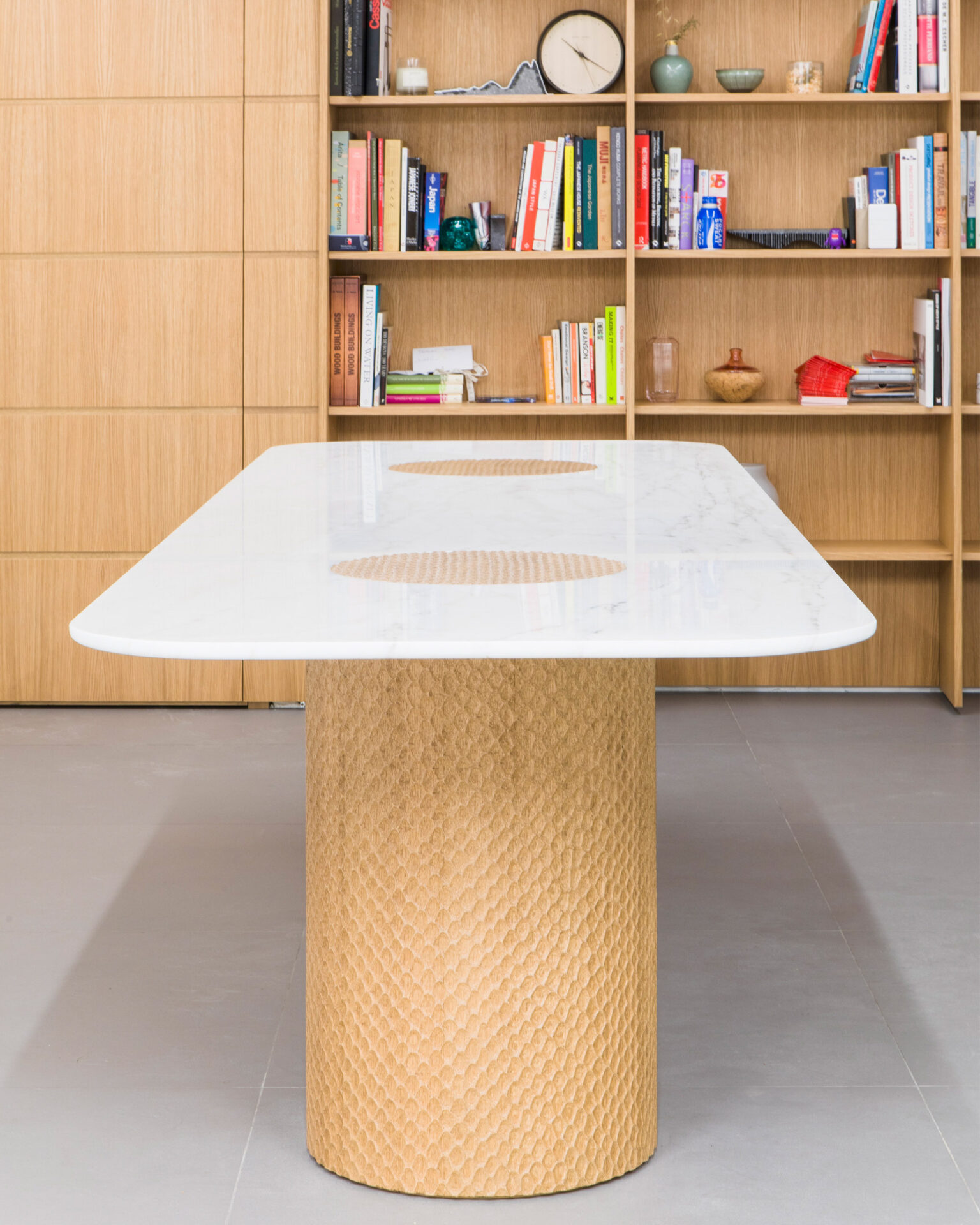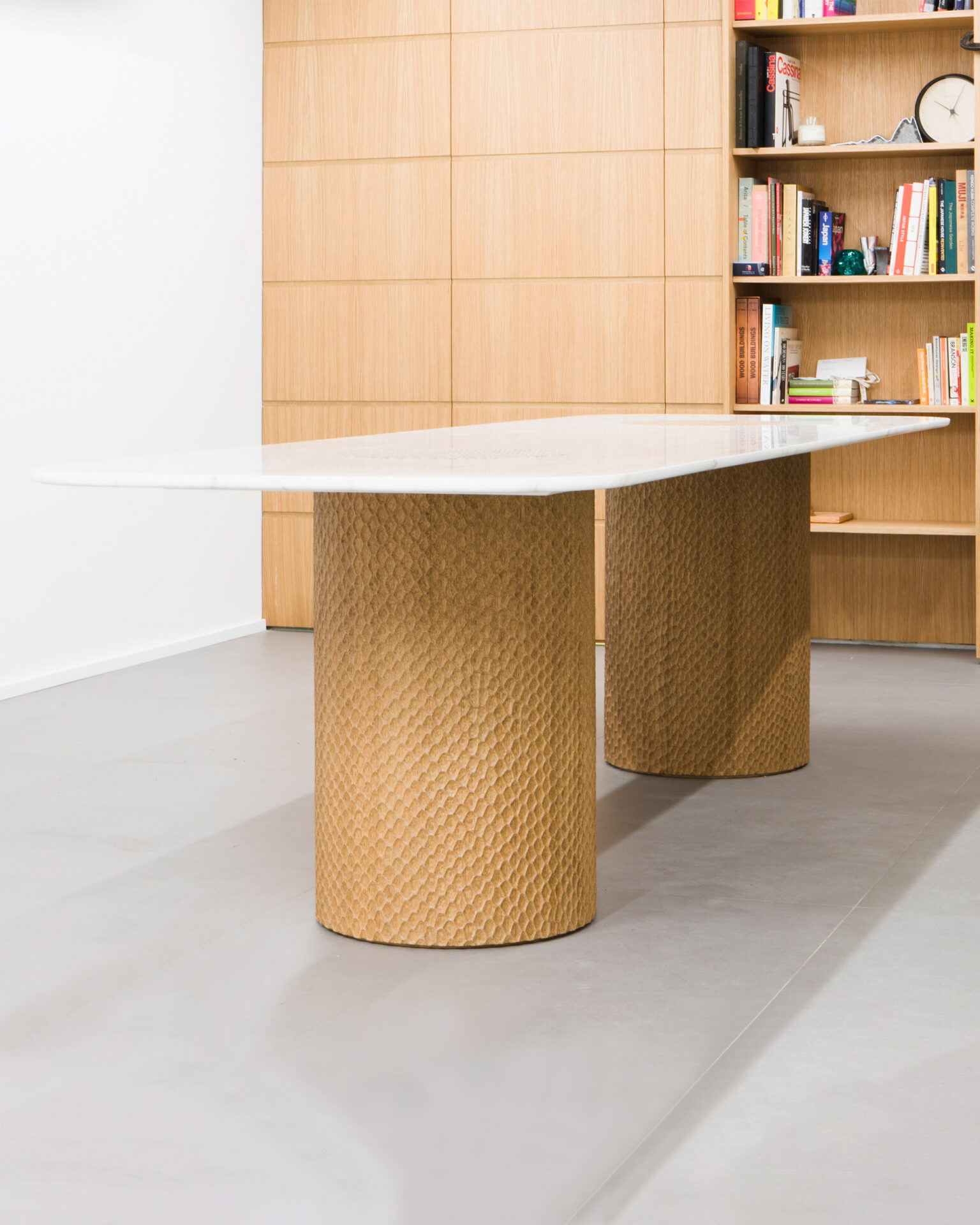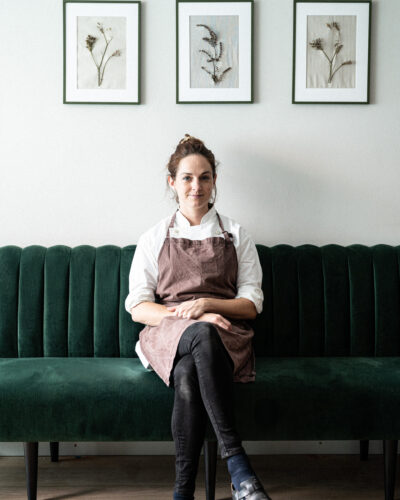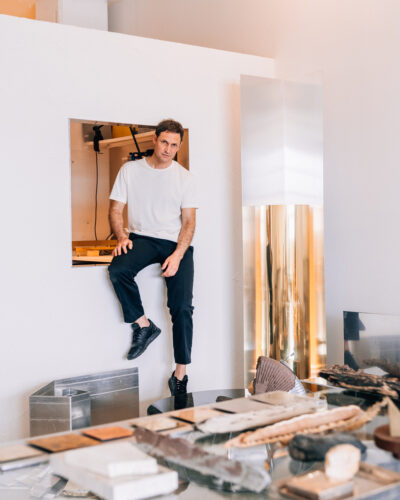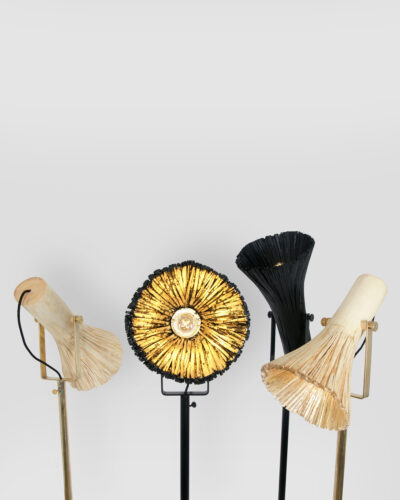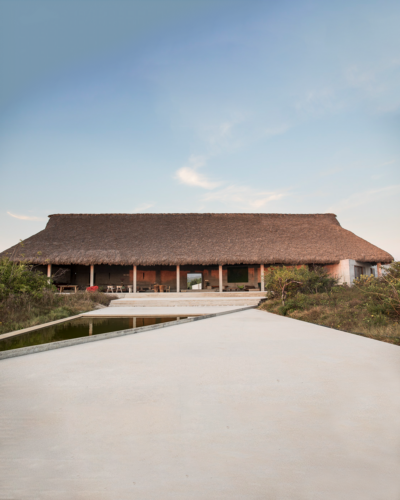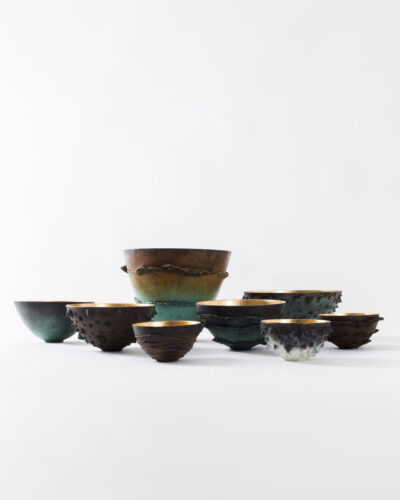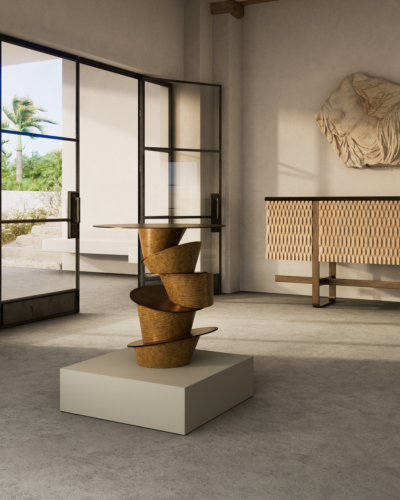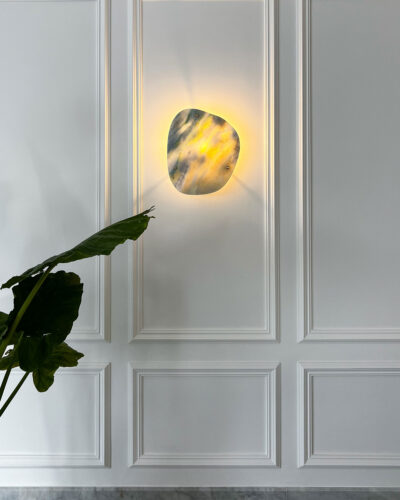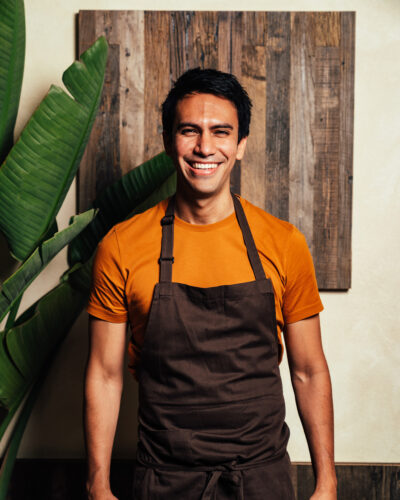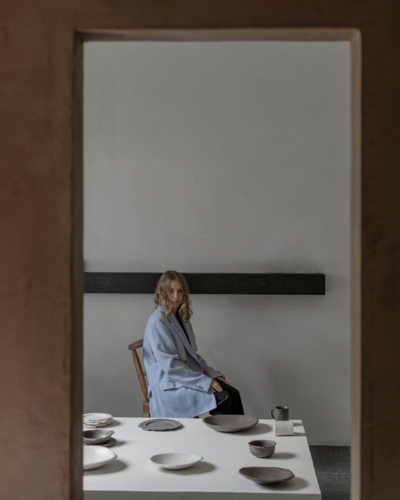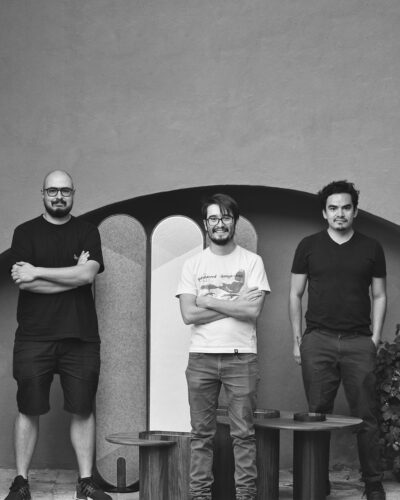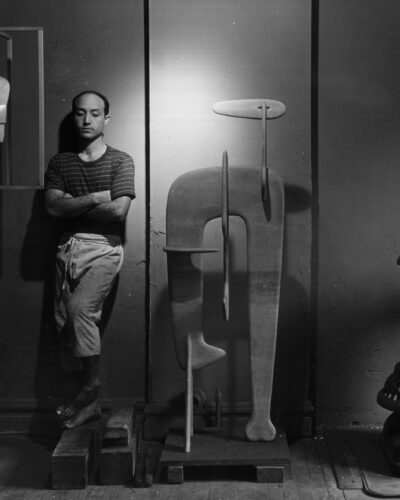This website uses cookies so that we can provide you with the best user experience possible. Cookie information is stored in your browser and performs functions such as recognising you when you return to our website and helping our team to understand which sections of the website you find most interesting and useful.
Listen to the conversation between Rosanna and Thomas Trad.
“The culture in Lebanon is quite different from anywhere else in the world, craftsmanship is something that is very deeply rooted in our culture, and there are a lot of amazing craftsmen there, [working in everything from] textile to glass blowing and wood carving,” notes Thomas Trad, the Founder and Director of his eponymous design studio. A Beiruit-native, Trad has been greatly influenced by the culture of craft in his home country, a culture in which he himself now participates…
Having studied Product Design at London’s Central Saint Martins, Trad’s own studio was born from the relationships and connections that he made upon his return to Beirut: “It was very interesting to move back and to try to meet the people here and start working with them. I guess, in a way, it’s what drives me and my work.” Using a palette of refined natural materials, Trad’s designs are more-often-than-not the result of being in the workshop, the marble factory or in conversation: “It always starts by playing around with different machines and techniques, or meeting new people. ”
“It’s never the same design process: it’s not a sketch in a sketchbook”
Working in collaboration with skilled hands and established experts, Trad’s role is often to translate between two worlds: traditional craft techniques and contemporary design. “One of my most recent pieces is a coffee table that’s entirely hand carved; I worked with a wood carver who typically makes very traditional French-style furniture, carving lions and animals out of wood, and so working with him – asking him to do something very simple – wasn’t easy at first…”
The resulting piece, the Uroko table, takes a minimalist approach to intricate detailing, its solid wooden surfaces are decorated with an all-over texture that brings to mind honeycomb and corrugated cardboard, as well as high-tech 3D-printed structures. “The name ‘Uroko’ comes from Japanese for fish scales … I love to play with texture in my work, to create textures that you aren’t expecting. Usually a piece of furniture made in wood would be very smooth to the touch – and this piece is, in a way – but when you touch it, it still has these rough edges that come from the gouging technique.” Topped with sleek white marble, the hand-carved oak base seems to emerge through its surface – a puddle of texture amid the gloss and luxury of Aspen White.
“[My work is] always a play around the contrast and textures of the materials.”
The Eva partition is a sophisticated assemblage, combining different shapes, textures and materials into an elegant and cohesive piece. Each panel is composed of several pieces – a veritable jigsaw in wood and rattan, with fragments of mirror scattered on the reverse. Flashes of gold-toned brass are revealed in the joints and bends, and the playful design invites you to look between, through and beyond the screen’s surfaces: “This piece was intended for the bedroom, something to get undressed and changed behind, and so it is a bit of a play on sensuality: you can see yourself and be seen at the same time because the rattan is see-through…”
An exploration of the materials, crafts and collective expertise available in Beirut, Trad’s studio capitalises on the country’s abundant marble factories. “The relationship I have with the craftsmen is very hands-on; I never just send a drawing and say ‘Please make this’, I physically go to the factory, and we sit together and we try to work things out.” During a visit to a marble factory, Trad’s interest was piqued by one of the machines – the gang saw that is used to cut large blocks of marble into thin slabs for tiling and architecture. “I was trying to find an excuse to use this machine, which obviously, as a product designer, you wouldn’t really use, but I wanted to find a way… So we found this big block of Nero Marquina and we put it on the saw, stopping the machine just before it sliced all the way through…”
The monumental bench, named Kujira, is shaped like the hull of a boat, and the neat rows of cuts slice right through its bulk. “[This detail] gives a feeling of lightness to the piece even though it still weighs 700-800kg. The light can pass through and so it makes the piece feel lighter than it is.” Both heavy and delicate, the design brings to mind a fine-toothed comb, or the fringed teeth of the humpback whale.
“I discover new marbles everyday and that’s what I like to play around with, because most people think that marble is white, or black, or grey – but actually you can find such amazing colours, and that’s what I’m trying to show in my work … We have all these beautiful greens, blues and reds – and combined together they looked fantastic. When you’re doing smaller scale pieces you really want them to pop – like a candy, very colourful.”
Trad’s marble candies – the Alïa series of vases and vessels – are smooth and weighty, carved from a single piece that accentuates the complex swirls and veins of the material. Fingers of marble in contrasting colours embellish the outer surface, and the long beads bring to mind the Italian coffee biscuit, the savoiardi – or the elegant grissini… Rich and vibrant, Trad pairs dusky pink with turquoise; verdant green and terracotta; ox-blood red with rippled white and blue. Cut and polished by hand, each bead is made with the same care and attention as a jeweller working with precious stones. “The Alïa is almost entirely handmade – we do use a couple of machines to do the rough work, but each bead is sanded and polished by hand to achieve the final shape.”
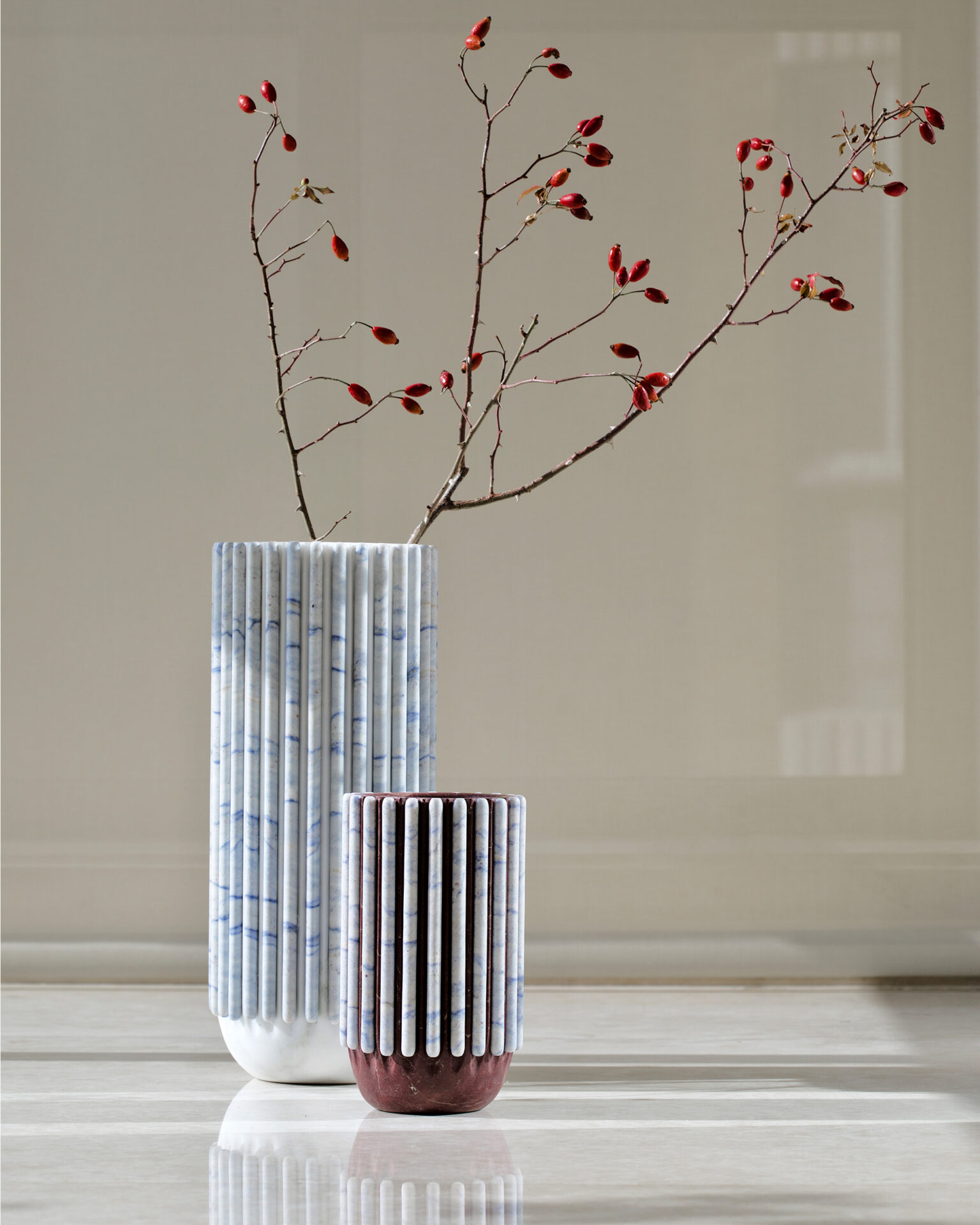
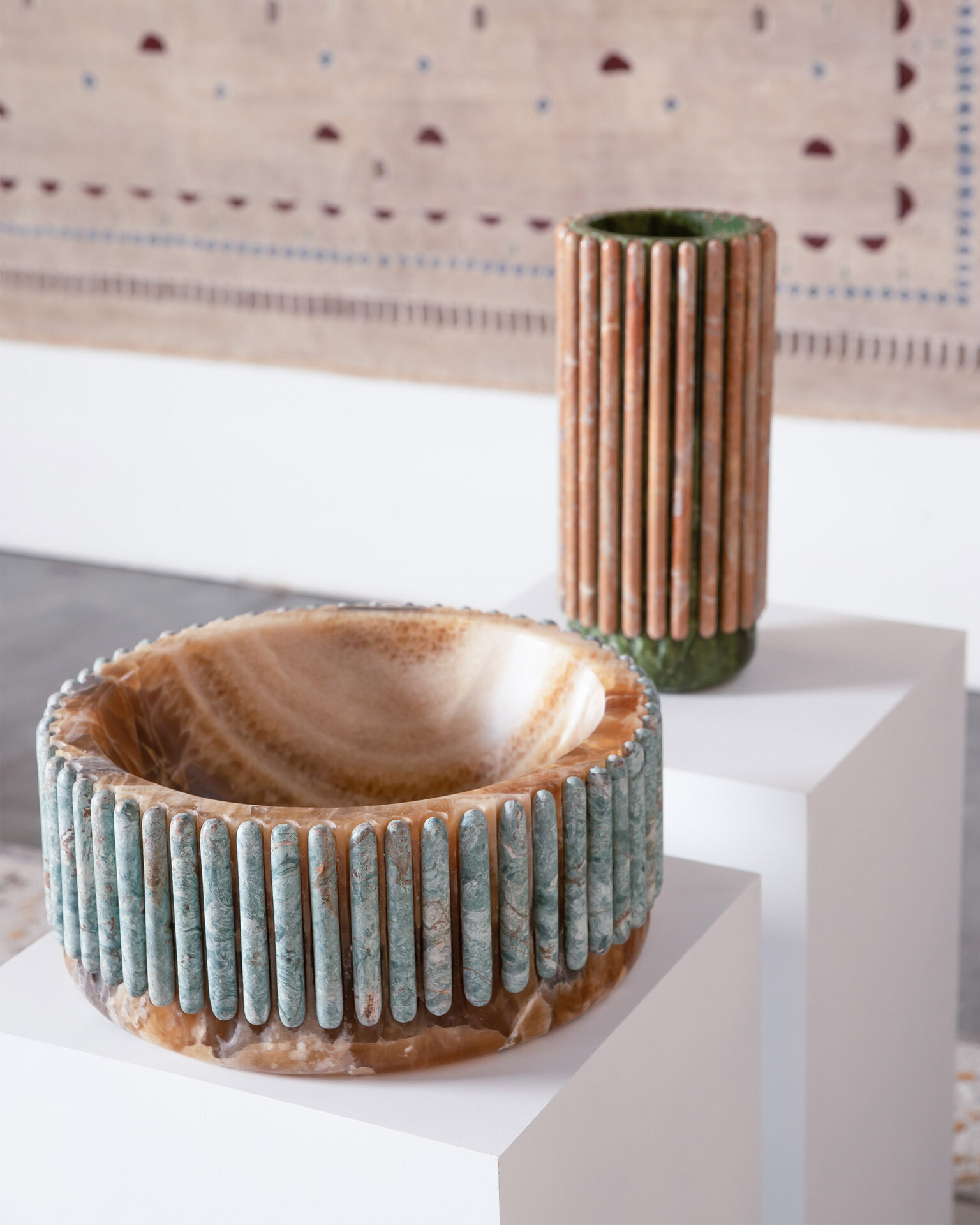
Thomas Trad’s Beirut studio reflects his increasingly intense focus on craft and process, having evolved over the years from a, “neat office and showroom,” to a fully-functioning workshop, a place for making and experimentation. “I went to Japan for a month to do an intensive course in traditional Japanese carpentry, and came back with two suitcases full of tools. I needed a place to use them, somewhere to keep practising, and so I turned one corner of the studio into a little workshop, and that corner became another corner, and now we just have one corner left, and the rest is all workshop.”
Dedicated to artistry and craft, the maker and their tools, Thomas Trad’s work is informed more by technique than any aesthetic or style, and his interest in methodology – in how things are made – has resulted in innovative forms and a deeply personal approach to material.
